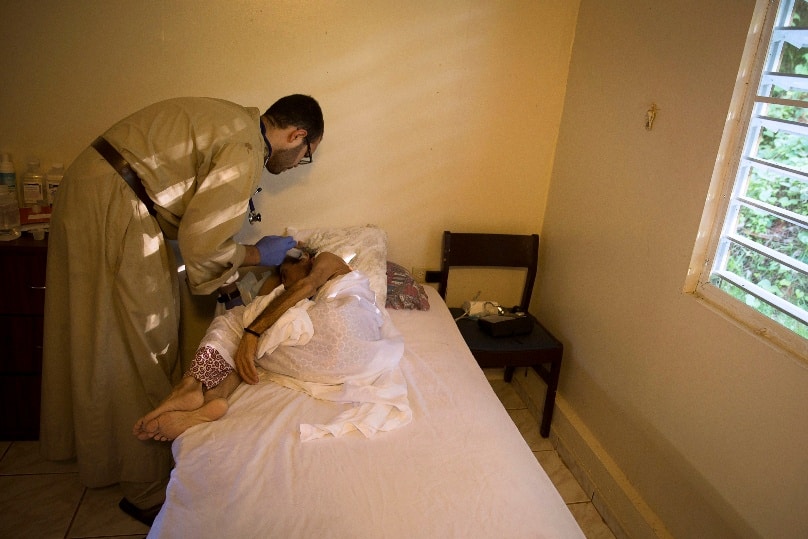
Here, in the pope’s words, is how you can gain the indulgence for the Year of Mercy.
The basic conditions
“To experience and obtain the indulgence, the faithful are called to make a brief pilgrimage to the Holy Door, open in every cathedral or in the churches designated by the diocesan bishop, and in the four papal basilicas in Rome, as a sign of the deep desire for true conversion. Likewise, I dispose that the indulgence may be obtained in the shrines in which the Door of Mercy is open and in the churches which traditionally are identified as Jubilee Churches. It is important that this moment be linked, first and foremost, to the Sacrament of Reconciliation and to the celebration of the Holy Eucharist with a reflection on mercy. It will be necessary to accompany these celebrations with the profession of faith and with prayer for me and for the intentions that I bear in my heart for the good of the Church and of the entire world …
For the sick or incapacitated
“[Also] those for whom, for various reasons, it will be impossible to enter the Holy Door, particularly the sick and people who are elderly and alone, often confined to the home. For them it will be of great help to live their sickness and suffering as an experience of closeness to the Lord who in the mystery of his Passion, death and Resurrection indicates the royal road which gives meaning to pain and loneliness. Living with faith and joyful hope this moment of trial, receiving communion or attending Holy Mass and community prayer, even through the various means of communication, will be for them the means of obtaining the jubilee indulgence.
For those who are imprisoned
“My thoughts also turn to those incarcerated, whose freedom is limited. The Jubilee Year has always constituted an opportunity for great amnesty, which is intended to include the many people who, despite deserving punishment, have become conscious of the injustice they worked and sincerely wish to re-enter society and make their honest contribution to it. May they all be touched in a tangible way by the mercy of the Father who wants to be close to those who have the greatest need of his forgiveness. They may obtain the indulgence in the chapels of the prisons. May the gesture of directing their thought and prayer to the Father each time they cross the threshold of their cell signify for them their passage through the Holy Door, because the mercy of God is able to transform hearts, and is also able to transform bars into an experience of freedom.
Spiritual, corporal works
“Each time that one of the faithful personally performs one or more of these actions, he or she shall surely obtain the jubilee indulgence. Hence the commitment to live by mercy so as to obtain the grace of complete and exhaustive forgiveness by the power of the love of the Father who excludes no one.
Ande for those who have died
“Furthermore, the jubilee indulgence can also be obtained for the deceased. We are bound to them by the witness of faith and charity that they have left us. Thus, as we remember them in the Eucharistic celebration, thus we can, in the great mystery of the Communion of Saints, pray for them, that the merciful face of the Father free them of every remnant of fault and strongly embrace them in the unending beatitude.”
– Pope Francis’ letter to Archbishop Rino Fisichella, President of the Pontifical Council for the Promotion of the New Evangelisation.
